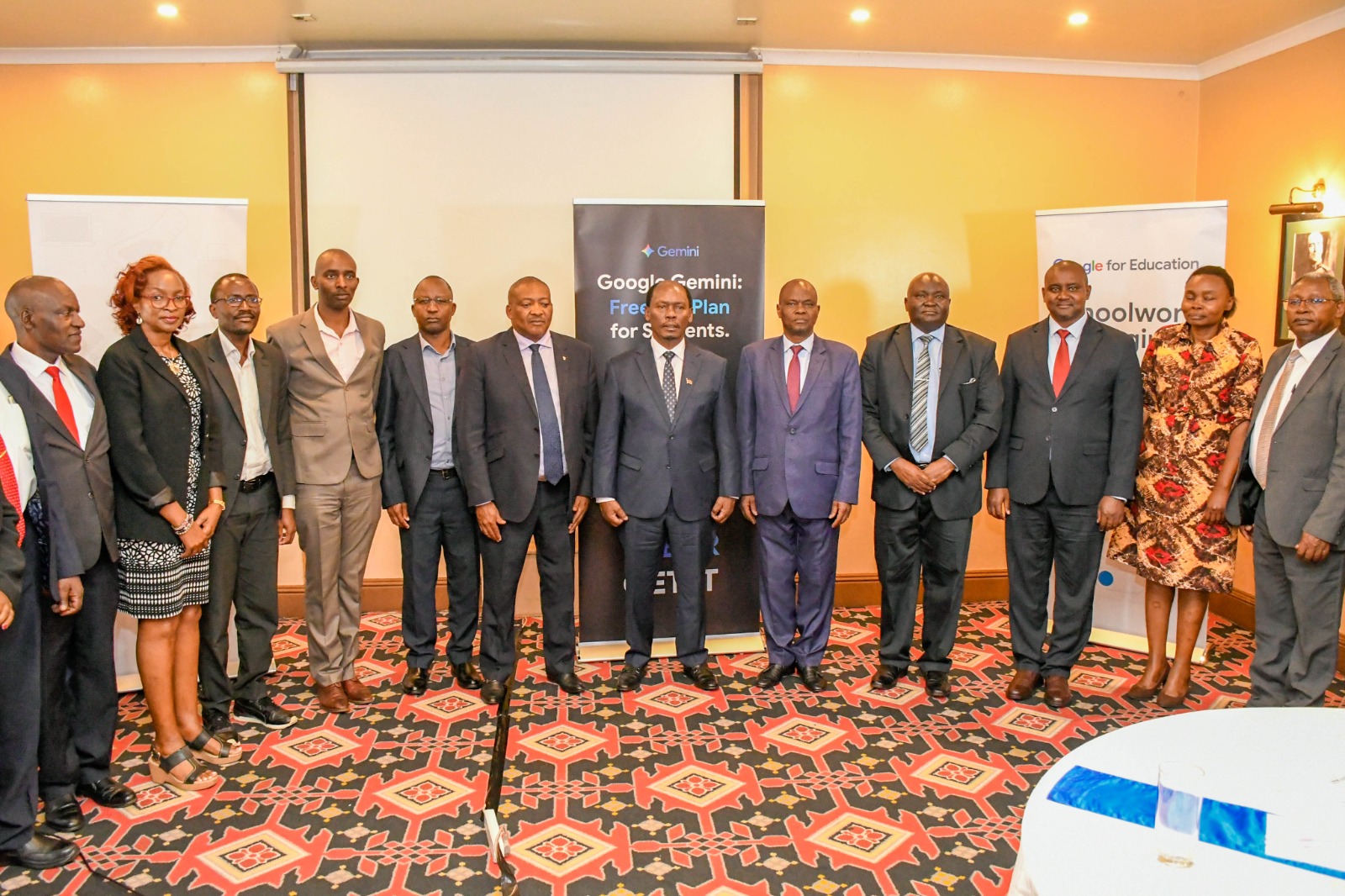Google Gemini Pro Plan Set to Elevate Student AI Experience
The University of Nairobi is set to revolutionise its academic experience following the official launch of the Google Gemini Pro Plan for Kenyan University & College Students and the Gemini Academy for Lecturers, at a high-profile event held at the Sarova Stanley Hotel on November 12, 2025. The initiative will provide eligible students with 12 months of complimentary access to the Google Gemini Pro Plan, the company’s most advanced Artificial Intelligence (AI) model.
This massive boost is aimed at equipping students with foundational AI literacy and cutting-edge tools to enhance learning, research and readiness for the future job market.
The launch was graced by the Chief Guest, Cabinet Secretary for the Ministry of Information, Communications and the Digital Economy, Hon. William Kabogo. In his address, the CS hailed the partnership as a pivotal step that aligns perfectly with the government's vision of fostering a digitally empowered, knowledge-based economy.
"This access to the Gemini Pro Plan is not just a technological handout; it is a strategic investment in the future of our youth," said CS Kabogo. "By democratizing access to powerful AI tools, we are ensuring that Kenyan students are not just consumers of technology, but its architects," he added.
Representing the Principal Secretary for Higher Education and Research, Dr Beatrice Inyangala, was Dr David Watene, Director for Education, State Department for Higher Education & Research, Ministry of Education, who underscored the Ministry's commitment to integrating advanced technology into the academic curriculum.
“I would like to convey the unwavering support and commitment from the State Department for Higher Education & Research. The integration of advanced technology, like the Google Gemini Pro Plan, into our academic curriculum is not just an aspiration; it is a strategic imperative for our nation,” he said.
The University of Nairobi was prominently represented by the Deputy Vice Chancellor for Academic Affairs, Prof. Ayub Gitau, who attended on behalf of the Vice Chancellor, Prof. Margaret Hutchinson. Prof. Gitau welcomed the partnership, stating that providing access to the Gemini Pro Plan will significantly elevate the quality of student research and foster a culture of AI-driven innovation across all faculties.
“We recognise that the future of knowledge creation is deeply intertwined with Artificial Intelligence. Granting this cutting-edge tool to our students will significantly elevate the quality of their research, analysis and problem-solving,” said Prof Ayub.
The impact of the tool was demonstrated by Ms Rachel Welinga, a 4th-year UoN Pharmacy student from the Faculty of Health Sciences. She explained how Gemini AI has become an indispensable study partner, particularly in helping her break down and understand complex chemical structures in her coursework, illustrating the real-world benefit to University of Nairobi students.
"In Pharmacy, understanding complex chemical structures of medicine can be incredibly challenging," Welinga explained. "Gemini AI acts as a personal tutor, helping me to break down intricate concepts, summarise vast research papers and even generate personalised quizzes for exam preparation. It has made my study life significantly easier and more effective," she said.
The event also saw the launch of the Gemini Academy for Lecturers, a specialised training initiative focused on teaching ethical AI usage and integrating these powerful tools into classroom instruction and research. This ensures that educators can responsibly harness AI to enhance learning outcomes and maintain academic integrity.
The launch concluded with a symbolic moment as the University of Nairobi Student Association (UNSA) Vice President, Ms Purity Mutua, personally guided Cabinet Secretary Hon. William Kabogo through the official registration process for the Google Gemini Pro Plan, marking the formal opening of the plan to thousands of students nationwide.
This initiative will position the University of Nairobi at the forefront of AI integration in higher education, promising a transformative year for both students and faculty.

